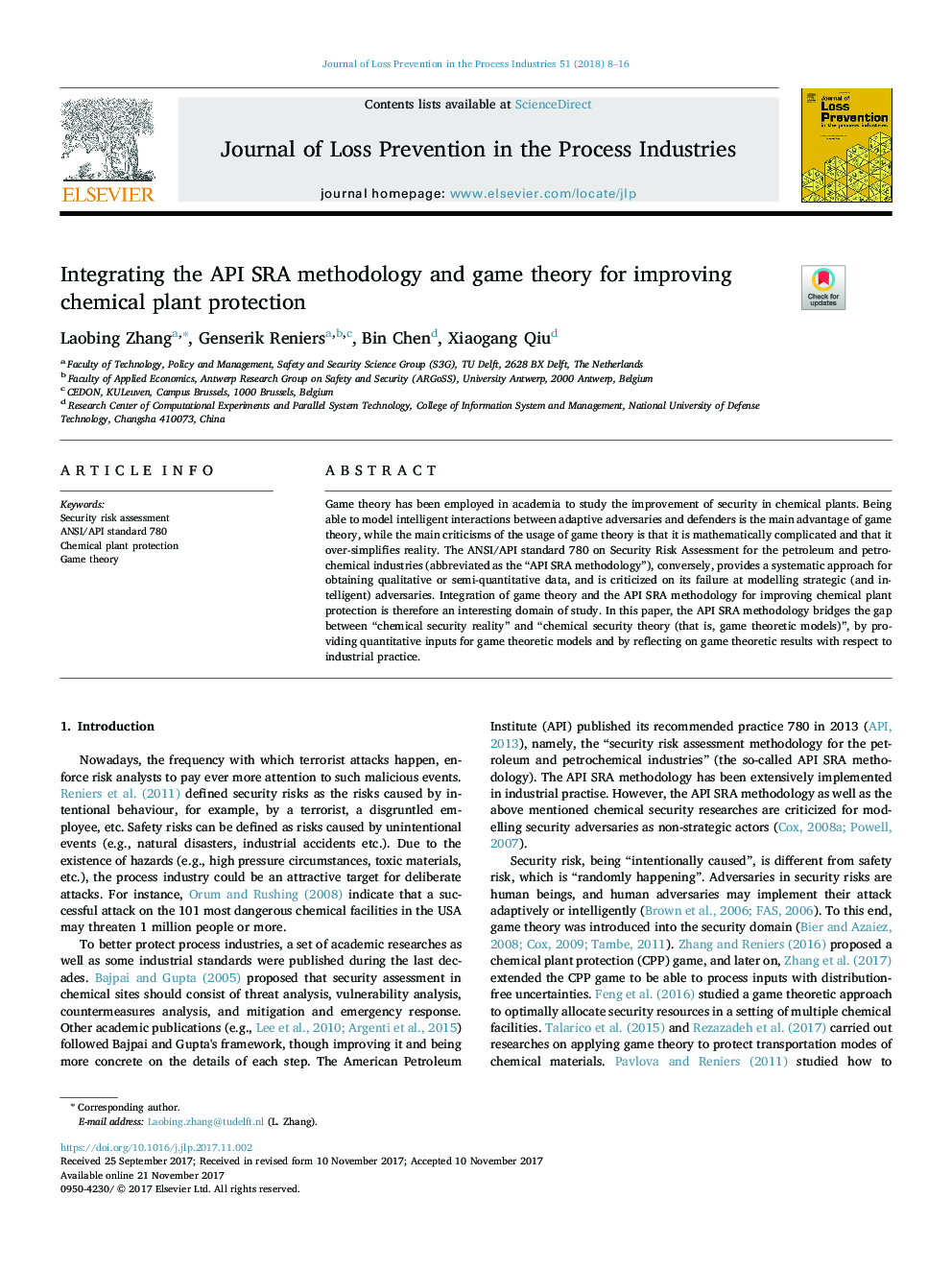| Article ID | Journal | Published Year | Pages | File Type |
|---|---|---|---|---|
| 6972922 | Journal of Loss Prevention in the Process Industries | 2018 | 9 Pages |
Abstract
Game theory has been employed in academia to study the improvement of security in chemical plants. Being able to model intelligent interactions between adaptive adversaries and defenders is the main advantage of game theory, while the main criticisms of the usage of game theory is that it is mathematically complicated and that it over-simplifies reality. The ANSI/API standard 780 on Security Risk Assessment for the petroleum and petrochemical industries (abbreviated as the “API SRA methodology”), conversely, provides a systematic approach for obtaining qualitative or semi-quantitative data, and is criticized on its failure at modelling strategic (and intelligent) adversaries. Integration of game theory and the API SRA methodology for improving chemical plant protection is therefore an interesting domain of study. In this paper, the API SRA methodology bridges the gap between “chemical security reality” and “chemical security theory (that is, game theoretic models)”, by providing quantitative inputs for game theoretic models and by reflecting on game theoretic results with respect to industrial practice.
Keywords
Related Topics
Physical Sciences and Engineering
Chemical Engineering
Chemical Health and Safety
Authors
Laobing Zhang, Genserik Reniers, Bin Chen, Xiaogang Qiu,
